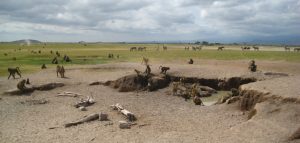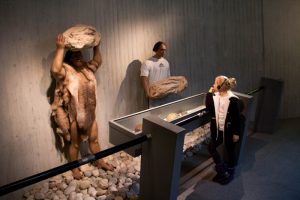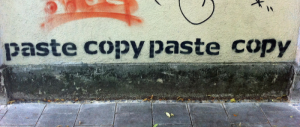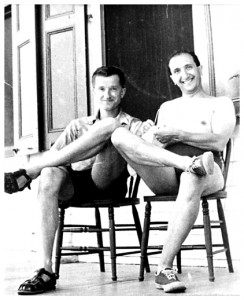Enter your address to receive notifications about new posts to your email.
Articles tagged Evolution
(101 results)
-
Kimura & Crow: Infinite alleles
For two weeks in the summer of 1953, Motoo Kimura enjoyed a welcome respite from loneliness and the austerity of post-war Japan. Crossing the Pacific from Yokohama to Seattle to commence PhD studies at Iowa State University, Kimura played deck golf, enjoyed full service meals, and napped to the soothing vibrations of the venerable passenger…
-
#TAGC16 Shorts: What if gene expression timing matters more than abundance?
Guest post by Christian R. Landry. #TAGC16 Shorts are brief summaries of presentations at The Allied Genetics Conference, a combined meeting of seven genetics research communities held July 13-17, 2016 in Orlando, Florida. When building new phenotypes, evolution often draws on mutations of the intricate mechanisms that regulate gene expression. If such regulatory mutations are…
-
#TAGC16 Shorts: the bursting bubble of harmful mutations
Guest post by Tyler Kent. #TAGC16 Shorts are brief summaries of presentations at The Allied Genetics Conference, a combined meeting of seven genetics research communities held July 13-17, 2016 in Orlando, Florida. Purging harmful mutations is the most common task of natural selection. In non-recombining populations this background selection process represents the “survival of the…
-
#TAGC16 Shorts: ancient roots of arthritis
#TAGC16 Shorts are brief summaries of presentations at The Allied Genetics Conference, a combined meeting of seven genetics research communities held July 13-17, 2016 in Orlando, Florida. Elbows, knuckles, and the other synovial joints in your body are mobile marvels of evolution. These joints allow a huge range of possible movements thanks to the presence of…
-
Genetic test helps ponies leave the past behind
For the past several decades, Shetland ponies’ collective past had caught up with them. A portion of the population of these miniature horses is affected by atavism, a phenomenon in which ancient characteristics are accidentally revived by mutations. Traits reincarnated in this way sometimes interact disastrously with the genetic background of the modern organism. For…
-
Selfish self-fertilization hampers adaptation
When finding a mate is difficult, self-fertilization offers a tempting solution by increasing the number of offspring an individual can produce. But although “selfing” provides a stopgap solution when mates are scarce, it is frequently an evolutionary dead end; when environmental conditions change, species with high selfing rates seem prone to extinction. In an article…
-
How bacteria dodge new antibiotic candidates
Antibiotics, a vital tool for fighting infections, were originally products of nature—the first antibiotic was serendipitously discovered in mold contaminating a bacterial culture. As antibiotic resistance becomes an increasingly serious threat, scientists are attempting to wring another type of pathogen-fighting drug from the wild: antimicrobial peptides. Antimicrobial peptides, or AMPs, are found in almost every…
-
Fecal alchemy: Turning poop into genomics gold
When it comes to genotyping technology, poop genetics is stuck in the 1990s. While most geneticists are now awash in genome-scale data from thousands of individuals, those who depend on fecal and other non-invasively collected samples still rely on old-school, boutique panels of a dozen or so genetic markers. But feces — along with fur,…
-
Inbred Neanderthals left humans a genetic burden
The Neanderthal genome included harmful mutations that made the hominids around 40% less reproductively fit than modern humans, according to estimates published in the latest issue of GENETICS. Non-African humans inherited some of this genetic burden when they interbred with Neanderthals, though much of it has been lost over time. The results suggest that these harmful…
-
Runaway amplification: 800 copies and counting
Massive amplification of genes is a desperate strategy taken by stressed populations adapting to an environment that has become inhospitable. Such amplifications can give an underperforming gene a much-needed boost in productivity simply by increasing its copy number. But counterintuitively, research reported in the May issue of G3 implies these amplifications may arise even in…
-
Luria & Delbrück: Jackpots and epiphanies
In the early 1940s, many biologists doubted bacteria had genes. After all, they seemed to play by their own genetic rules: they appeared to lack chromosomes, meiosis, mitosis, sex, and all the other trappings of Mendelian inheritance. They even seemed to show a kind of Lamarckian inheritance, in which an individual could pass on traits acquired…


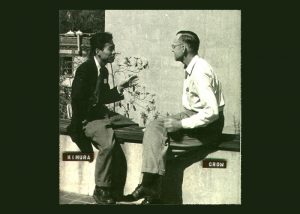
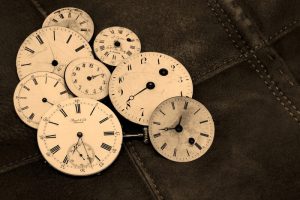
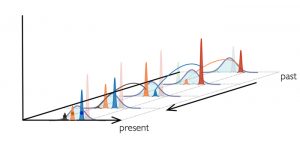
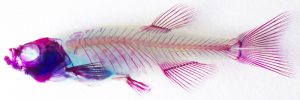
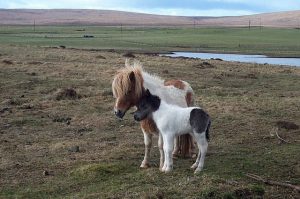
![Helonias bullata, a species threatened with extinction. Its low genetic diversity, a factor contributing to its decline, may have been caused by a high rate of self-fertilization. By Hedwig Storch (Own work) [CC BY-SA 3.0 (http://creativecommons.org/licenses/by-sa/3.0)], via Wikimedia Commons.](https://s43361.pcdn.co/wp-content/uploads/2016/07/1024_Helonias_bullata_Arktisch-alpiner_Garten_Chemnitz-0931-e1467579681557-300x197.jpg)
![Molecular model of penicillin, the first antibiotic discovered. Later, antimicrobial peptides were also found to have antibiotic properties. By Science Museum London / Science and Society Picture Library [CC BY-SA 2.0 (http://creativecommons.org/licenses/by-sa/2.0)], via Wikimedia Commons.](https://s43361.pcdn.co/wp-content/uploads/2016/06/Molecular_model_of_Penicillin_by_Dorothy_Hodgkin_9663803982-300x212.jpg)
